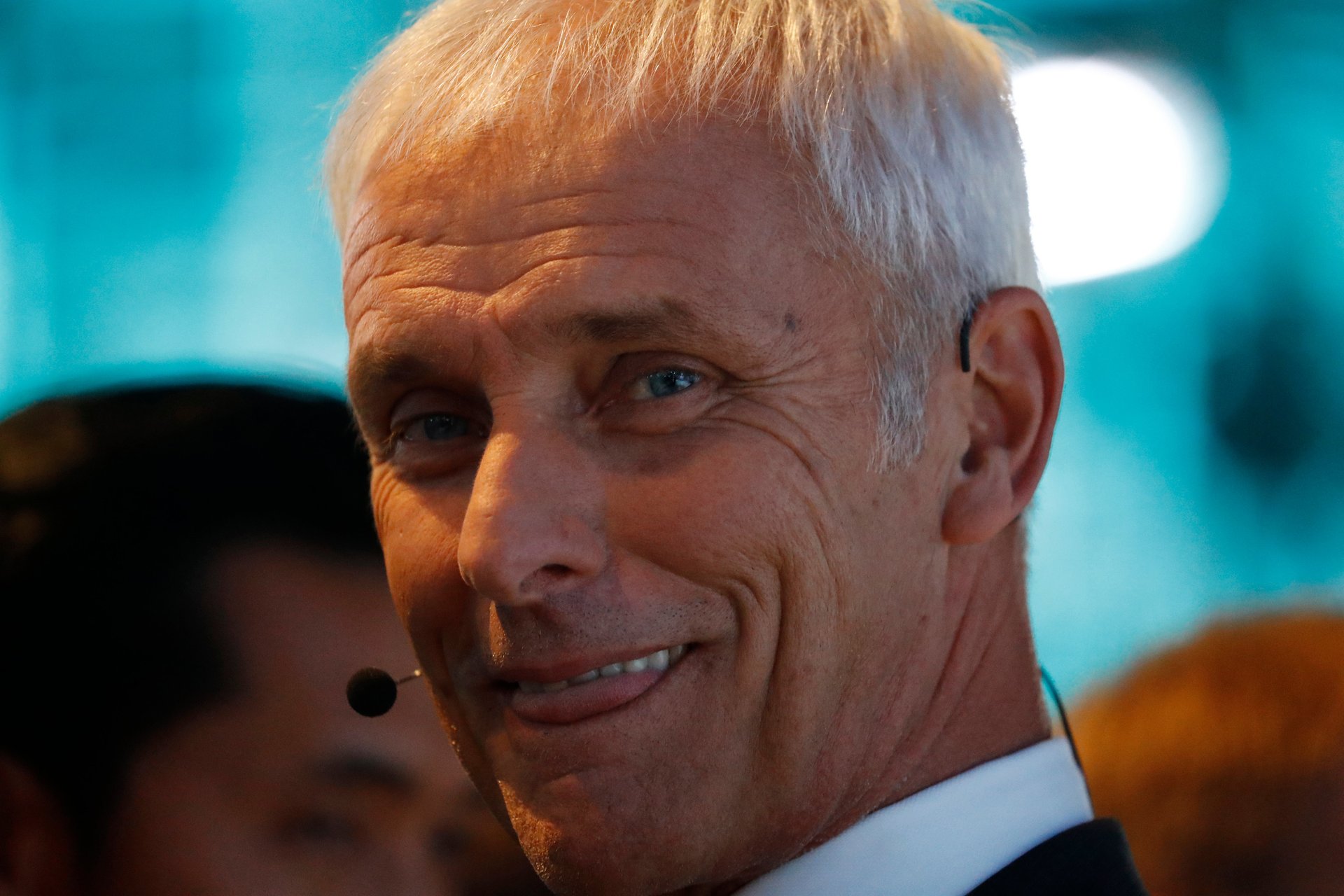After cheating to sell diesels, Volkswagen wants to end diesel tax breaks
In an about-face that’s taking the industry by surprise, Volkswagen chief executive Matthias Müller told business daily Handelsblatt (paywalled link in German) that the German government needs to start phasing out its diesel fuel subsidies. The tax break, designed to boost sales of diesel cars, costs the government about €7.8 billion ($9.1 billion) a year.


In an about-face that’s taking the industry by surprise, Volkswagen chief executive Matthias Müller told business daily Handelsblatt (paywalled link in German) that the German government needs to start phasing out its diesel fuel subsidies. The tax break, designed to boost sales of diesel cars, costs the government about €7.8 billion ($9.1 billion) a year.
Müller said Germany should question the sense of diesel subsidies. “If the transition to environmentally friendly electric cars is to succeed, diesel combustion engines cannot be subsidized like before,” he told Handelsblatt. “The money could be more meaningfully invested in the promotion of environmentally friendly drive technologies.”
Mueller, head of the world’s biggest auto group, took over when former CEO Martin Winterkorn resigned in 2015, after the company was busted by US regulators for rigging the software in VW diesel cars to give false emissions readings. The misconduct has cost VW more than €25 billion so far, though the carmaker wasn’t the only bad actor caught up in the diesel-emissions scandal. Daimler and Audi between them had to recall nearly 4 million diesels to fix the engine emissions.
Germany invented diesel technology, and it’s almost sacred to the country’s car giants. Some, including, Daimler and BMW, are still building diesel engines into their growth strategies.
However, with countries such as France and the UK threatening to ban diesel cars starting in 2040, and some German cities mulling a ban on older diesel engines, VW is clearly eager to shake off its shame. In September, it announced a plan to invest heavily in battery tech and said it will offer electric versions of all 300 of its car models by 2030.
The future of the formerly beloved diesel engine may be determined by consumers already voting with their wallets. With worries about nitrous-oxide emissions and the prospect of diesel bans (and being stuck with impossible-to-sell cars), people are deserting diesel in droves. Sales of new diesel cars in Germany dropped 17% last month to a market share of 34%, while gasoline car sales rose 28% to give them a market share of 61.7%. That trend is playing out across all major European car markets.